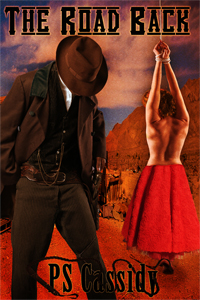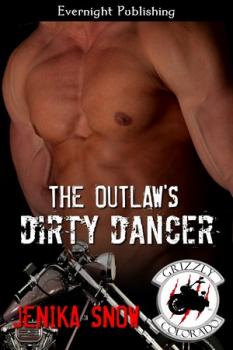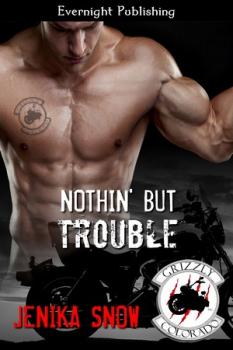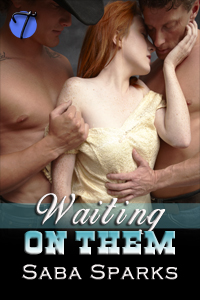Ruby McDermitt was heading home. But where was home? The place where she grew up? The house she lived in before Missouri went crazy? Or was it only in her dreams, her gilded memories of picnics on the lawn, of waiting for a man who would come and take her away.
All Ruby wanted to do was go home, but she didn’t know her journey would cross paths with Erastus Morgan and Percy Lafayette, late of Morgan’s Marauders, heroes of the Cause. Those fellows wanted a home too. They were desperate to reclaim what they had lost, even if it meant brutally rebuilding their past.
Ruby’s journey, her winding road, is for anyone who has ever sought a future by revisiting the past.

They rode seven abreast, picking up cohorts along the way, men who seemingly materialized from the scrub brush to fall in behind the growing band. The riders knew the terrain well enough that they didn’t need the crowded roads. The old trails were better for people who had to be somewhere and knew where they were going. And in a land where the houses, once proud estates, were now piles of cinders—scrap not even worth salvaging, the fences broken, hauled off for firewood or left to rot in the fields—the war had left a countryside with no real borders, a wasteland with no beginning, no end.
The riders, now twenty strong, made a ragged vee shape, fluttering back and forth over the landscape like a flock of birds. At the point, riding very fast, spurring his horse on, was Brigadier General Erastus Morgan. He wore no uniform, no insignia. Morgan had declared himself a colonel when he entered the war on the side of the rebels. He put together a worthy band of fighters that did more to win the bloody capitulation of the people in his state than it did to further the Cause. When the war ended and the Confederates laid down their arms and went back to their ruined farms, the reconstructionists showed up, and then the speculators. Many of the locals left or never came home. A few tried to rebuild. But not Morgan. He said that he had just begun to fight, that the enemy hadn’t seen the worst of it yet, said that Gettysburg was just child’s play. He vowed the Cause wouldn’t die as long as he yet breathed. And before embarking on a new campaign, he gave himself a brevetted promotion to brigadier general.
In the bright rays of the afternoon sun, glittering over the fallow fields that once grew tobacco and hemp, a train streaked across the horizon. Morgan and his men turned en mass and headed west into the sun to meet the train that was already squealing its brakes into the station. Before the train made a full stop to embark and disembark passengers, and most importantly for Morgan, to take on five more sacks of mail, his men swarmed the track, aiming their shotguns at the conductor. It was Erastus Morgan himself who boarded the engine.
“Where you from, boy,” he yelled at the engineer.
“What, man, what are you—”
“That ain’t soundin’ like no place I’m familiar with,” Morgan said, taking the butt of his gun and hitting the man in the face, “Yankee. Why’n you just come out’n say it? It’d be better on you.”
The man groaned, holding his jaw, letting out a sigh.
“Yeah, I guess you wishin’ you was on the other side, you yellow-livered son-of-a-bitch. It’s our train now. What’dya think o’ that?”
The engineer opened his eyes, just slits, from where he was slumped in his chair. “You mean’t rob us, boy? We hardly got—”
“By my figgerin’ you got a good seven sacks o’ mail now and a couple cars of fancy passengers. Surely they’ll wanna give to our…efforts. I mean, think on it, old man. It’s the least y’all could do to help southern folks win our little war.”
“War? There ain’t no war. Not no more there isn’t. You won’t find nobody back there who has a quarrel with you fellows.”
Erastus pondered the man’s speech, his gunmetal blue eyes burning. He had smooth skin, was clean shaven. He didn’t look to be more than twenty-five, even with the deep furrows in his brow, the scar on his chin. His wavy dark hair contrasted with his eyes gave him a disjointed countenance, a man who would look to be equally at home on a black night or on a sun-drenched morning. “Listen, man,” he growled, “we ain’t gonna sit up here’n talk this thing out. I’ve got a war to win.” With that he clasped the man’s wrist and yanked him from his chair, pushed him out the door. With a grunt, the man fell in the dirt.
The passengers had been herded off the train by men who wore kerchiefs over their faces or had pulled on makeshift hoods. To the delight of Morgan’s men, the passengers who were stiffly stepping down from the train looked well heeled, the men wearing vests, watch chains swaying at their hips. The women were in long silk dresses, their throats decorated by lace collars and dangling ornaments, their arms braceletted, rings on their fingers. The outlaws knew well enough to avoid the white-washed station house. Train police were in there, and most likely a detachment of soldiers, or Union Butchers as Morgan called them. But the outlaw’s insurance, their safety, was the passengers who were lined up and were being systematically relieved of their valuables.
Erastus Morgan was a tall man with long, powerful legs, but he had delicate, thin fingers, appendages that didn’t fit well on such a roughhewn man. He walked between his men and the passengers they were robbing. He was the only one of the band who wore no mask or hood of any kind. He had only a leather hat that he politely doffed to each of the lady passengers who was waiting to be stripped of her jewelry.
To one such lady, a demure woman with auburn hair, he stopped his promenade and made a neat turn on his heels to face her. “Afternoon, ma’am,” he said affably. “I am so sorry for this terrible inconvenience, dreadfully sorry we are. Really I am. All m’boys are. But you got to understand, ma’am, that war is also a terrible thing. Men come and destroy ev’rything y’ever had and—” He broke off his speech, stood looking at the lady with a broad, toothy smile. The woman looked down, flustered, embarrassed for coming into this wild country with all of her worldly possessions. Erastus’ smile was frozen, leering. “You do un’erstand, don’t ya, ma’am?” he prattled on, seizing her hand roughly, examining it, turning it over. “We’re truly sorry, ma’am,” he repeated, slipping a ring off her finger, examining the bracelets that jangled on her wrist and then scooping them off with one motion. He looked at the ring in his hand, and then back at her eyes, still smiling. Taking her other hand, his glare still fixed on her eyes, he felt each finger for rings, removing two, the biggest.
A man stood just behind the lady, fidgeting in his woolen suit. He was clean shaven, wearing a bowler style hat and a gray vested outfit with a long frock coat. The man didn’t look at the robber, but instead, looked over the platform, studying the scene, watching the men with guns impatiently filling bags with the passengers’ valuables. He hoarsely whispered in his wife’s ear, “Louise, just give the man what he wants. We’ve got to get back on that train and get west. I have a meeting to attend to.” The man then looked at the watch he had pulled from his pocket.








